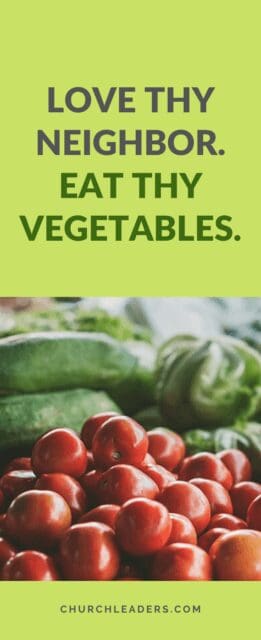Most Americans think of November as the month in which we feast. This is good and fitting. Yet there’s something else most Americans do every November. It’s not as exciting as feasting, but it’s important nonetheless. Every November, most Americans enroll in health insurance for the coming year. Some of you may wince at the cost of your premiums. You’ve undoubtedly noted that health insurance comprises a substantial portion of your budget. When we contemplate these numbers, it’s easy to blame corporate greed or other factors we can’t control and not our lifestyle choices. But what about the factors we can control? What are you doing to keep your own and your neighbor’s healthcare premiums from rising next year? In this article, I’m going to challenge you to think differently about your approach to lifestyle choices, health and healthcare.
What is health?
Health is the state in which our minds and bodies function as they were created to function. In this state, the body is constantly executing thousands of dizzyingly-complex electrical, mechanical, and biochemical processes to sustain life. For example, cardiac electrolytes perform a perfectly-choreographed dance to deliver a smooth heartbeat. And this is just one example! The human body is a living miracle. As Christians, we’re called to steward this miracle, just as we’re called to cultivate and keep the rest of God’s creation (Genesis 2:15).
Why Do We Buy Health Insurance?
Because we live in a broken world, our bodies break down. Those miraculous internal processes fail, leaving us with disease. Hence, we turn to external means for controlling internal processes. We take medication to govern those aberrant electrolytes in the heart. Not surprisingly, externally regulating physiology is more costly than having a body that regulates itself. Often, the burden imposed by disease is more than an individual (or family) can bear. Since we don’t know who and when disease will strike, we pool our risk and resources with others through health insurance. In other words, health insurance is an organized way to help us love our neighbors who have healthcare needs.
Prevention and Risk
Ultimately, death isn’t preventable in this broken world (unless Jesus soon returns). Disease isn’t entirely preventable either. There are still many diseases that seemingly arise “out of nowhere.” Yet some of the most common and costly conditions we face are more preventable than we might realize. I can’t give you an easy list of “preventable” and “unpreventable” conditions. However, I can say with certainty: prudent lifestyle choices decrease your risk for thousands of diseases. Those internal processes that support life are much cheaper to maintain than they are to fix.
Wrong Thinking
For most of us, there is a vast discrepancy between our healthcare values and our health-related actions. We say we value good healthcare and low premiums. Does the food in our refrigerators reflect these values? Or do we laugh about the dust collecting on our treadmills? Do we use health insurance as a safety net for when our lifestyle of self-indulgence catches up with us? We’ve forgotten that “health insurance” isn’t an abstract idea. It is the hard-earned resources of our co-workers, neighbors, and friends.
Striving to Decrease Risk
In the health insurance equation, some people will do more giving, and some people will do more receiving. That’s the nature of risk-sharing. Yet let me ask you this: what kind of person do you want in your risk pool? Do you prefer to share risk and resources with someone who is a good steward or a careless steward? As a Christian, you should live like that good steward you want in your insurance risk pool.
What does good stewardship look like? In short, eat wholesomely, stay active, and give your body a sensible amount of sleep. When we fail to do these things, we’re engaging in de-creation; we’re letting our bodies undergo premature decay. When we lace up our running shoes for a walk or jog, we do just the opposite (it’s called re-creation for a reason!) Good stewardship can be enjoyable, and it’s achievable for everyone.
Perhaps you find yourself in a place of great health. Perhaps you’re suffering from a disease that doesn’t appear to be the consequence of lifestyle choices. Or perhaps you understand that your conditions are—at least in part—the natural consequence of past decisions. Regardless, my aim is not to puff up or condemn. Rather, my aim is to encourage you to consider both the personal and community implications of your daily lifestyle choices.
Conclusion
I’m not going to promote a specific diet or exercise plan. While everyone’s situation is different, the principle is the same for all. For the sake of yourself and your community, take care of your body. Good stewardship doesn’t mean we’ll live forever. Just as we’re called to live well, we also need to be ready to die well. We have the certain hope of the resurrection and the New Creation. However, the truth of the New Creation doesn’t mean we trash the present creation until then! How you steward your body impacts yourself and those around you. So love thy neighbor, and eat thy vegetables.
This article originally appeared here.


